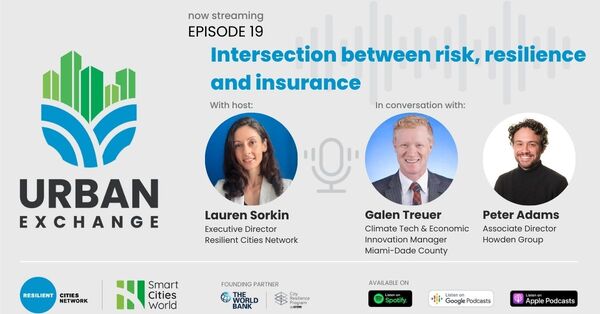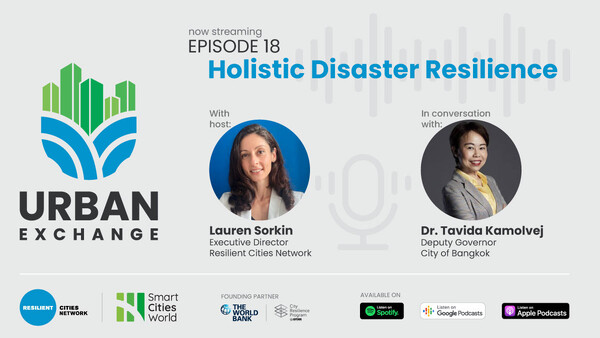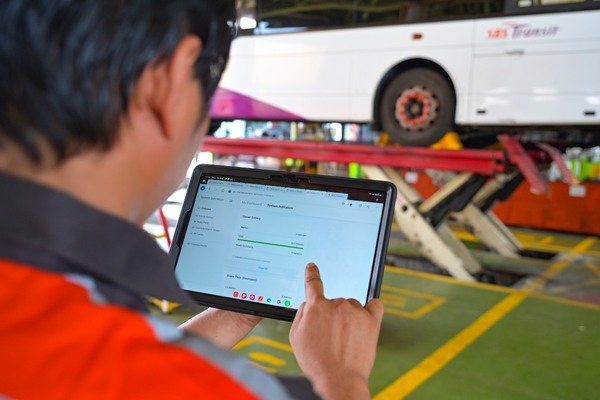Special Reports
SusHi Tech Tokyo 2024: experience ‘Tokyo 2050’ todaySponsored by The SusHi Tech Tokyo 2024 Showcase Program Executive Committee
Revolutionising public services
The technologies are helping overcome outdated legacy IT infrastructures and regulatory compliance

Advanced analytics and other emerging technologies are revolutionising the way governments and public service agencies are trying to address citizen demands, according to a new research report from Accenture.
The professional services firm found they are helping to overcome persistent challenges such as regulatory compliance, outdated legacy IT infrastructures and organisational cultures.
Emerging Technologies in Public Service examines the adoption of emerging technologies across agencies with the most direct interaction with citizens or the greatest responsibility for citizen-facing services: health and social services, policing/justice, revenue, border services, pension/social security and administration.
As part of the report, Accenture surveyed nearly 800 public service technology professionals across nine countries to identify emerging technologies being implemented or piloted. These technologies include advanced analytics/predictive modelling, the Internet of Things (IoT), intelligent process automation, video analytics, biometrics/identity analytics, machine learning, and natural language processing/generation.
The survey found that while more than two-thirds (70 per cent) of public sector agencies are evaluating the potential of emerging technologies, only a small percentage (25 per cent) is moving beyond the pilot phase to full implementation. This indicates that awareness is not translating into realised value for the majority of agencies surveyed. While most agencies are using traditional business technologies, emerging technologies -- like advanced analytics that include predictive modelling -- are making the biggest inroads.
“Emerging technologies are proving to have tremendous potential value for enabling public service agencies to not only meet their key internal resource challenges, but also provide innovative approaches to address the evolving needs of their citizens,” said Terry Hemken, who leads Accenture’s health & public service analytics insights for Government business. “Agencies need to rotate to the new, embracing the full value of using data to take advantage of the power of social, mobile and self-serve technologies that the world is demanding.”
Nearly half (48 per cent) of the agencies already implementing advanced analytics technologies that include predictive modelling said their chief objective in implementing these tools is to improve and support their employees’ work, and four-fifths (80 per cent) of respondents said that implementing emerging technologies will improve employees’ job satisfaction.
Advanced analytics are being commonly used to measure agency performance, with half of respondents at both pensions/social security and revenue agencies ranking it the top priority (50 per cent and 49 per cent, respectively). Addressing data privacy and security issues is the most-common use for analytics across several types of agencies, cited by 52 percent of respondents at border services agencies, 46 percent of respondents at revenue organisations, and 39 per cent of respondents at pension/social security agencies.
Improving service delivery to meet customer expectations was one of the lowest-rated uses for advanced analytics, with only two per cent of border services agencies, 5 per cent of pensions/social security agencies, six per cent of policing/justice agencies, 7 per cent of revenue agencies and 8 per cent of administrative functions agencies identifying it as a top priority. Integrated social service agencies, at 15 per cent, had the highest percentage of respondents citing “improving service delivery to meet customer expectations” as a top priority for using advanced analytics.
But, when the priority is improving citizen satisfaction, officials chose more-emergent technologies such as video analytics, biometrics, machine learning and the Internet of Things, according to survey results. More than three-fourths (78 per cent) of respondents report that implementing machine-learning technologies are either underway or completed.
If you like this, you be interested in reading the following:
Singapore launches GovTech to transform public service and strengthen smart nation delivery
The new agency will also play a big part in delivering smart nation infrastructure
smartcitiesworld.net/news/news/singapore-launches-govtech-to-transform-public-service-and-strengthen-smart-nation-delivery-998
Liverpool and Salford City Councils in digital collaboration
The partnership will serve as a model to show how other local authorities could work together to upgrade their legacy IT infrastructure
smartcitiesworld.net/news/news/liverpool-and-salford-city-councils-in-digital-collaboration-729
Peterborough wins second smart city award
The city council is named a winner in the Amazon Web Services worldwide City on a Cloud challenge
smartcitiesworld.net/connectivity/connectivity/peterborough-wins-second-smart-city-award


















